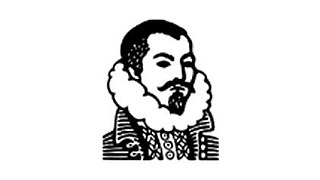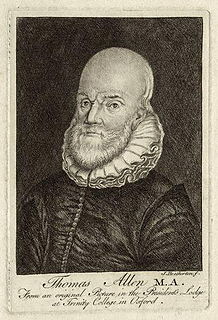
A Dictionary of Modern English Usage (1926), by Henry Watson Fowler (1858–1933), is a style guide to British English usage, pronunciation, and writing. Covering topics such as plurals and literary technique, distinctions among like words, and the use of foreign terms, the dictionary became the standard for other style guides to writing in English. Hence, the 1926 first edition remains in print, along with the 1965 second edition, edited by Ernest Gowers, which was reprinted in 1983 and 1987. The 1996 third edition was re-titled as The New Fowler's Modern English Usage, and revised in 2004, was mostly rewritten by Robert W. Burchfield, as a usage dictionary that incorporated corpus linguistics data; and the 2015 fourth edition, revised and re-titled Fowler's Dictionary of Modern English Usage, was edited by Jeremy Butterfield, as a usage dictionary. Informally, users refer to the style guide and dictionary as Fowler's Modern English Usage, Fowler, and Fowler's.

Benedict Biscop, also known as Biscop Baducing, was an Anglo-Saxon abbot and founder of Monkwearmouth-Jarrow Priory and was considered a saint after his death.

Longman, also known as Pearson Longman, is a publishing company founded in London, England, in 1724 and is owned by Pearson PLC.
Henry Watson Fowler was an English schoolmaster, lexicographer and commentator on the usage of the English language. He is notable for both A Dictionary of Modern English Usage and his work on the Concise Oxford Dictionary, and was described by The Times as "a lexicographical genius".

Sir William Alexander Craigie was a philologist and a lexicographer.

As the crow flies, similar to in a beeline, is an idiom for the most direct path between two points. This meaning is attested from the early 19th century, and appeared in Charles Dickens's 1838 novel Oliver Twist:
We cut over the fields at the back with him between us – straight as the crow flies – through hedge and ditch.

Penguin Books is a British publishing house. It was co-founded in 1935 by Sir Allen Lane with his brothers Richard and John, as a line of the publishers The Bodley Head, only becoming a separate company the following year. Penguin revolutionised publishing in the 1930s through its inexpensive paperbacks, sold through Woolworths and other high street stores for sixpence, bringing high-quality fiction and non-fiction to the mass market. Its success showed that large audiences existed for serious books. It also had a significant impact on public debate in Britain through its books on culture, politics, the arts, and science.

The Bodley Head is an English publishing house, founded in 1887 and existing as an independent entity until the 1970s. The name was used as an imprint of Random House Children's Books from 1987 to 2008. In April 2008, it was revived as an adult non-fiction imprint within Random House's CCV division.

David Crystal, is a British linguist, academic, and author.
Thomas Burton Bottomore, usually known as Tom Bottomore and published as T.B. Bottomore, was a British Marxist sociologist.

Robin James Lane Fox is an English classicist, ancient historian, and gardening writer known for his works on Alexander the Great. Lane Fox is an Emeritus Fellow of New College, Oxford and Reader in Ancient History, University of Oxford. Fellow and Tutor in Ancient History at New College from 1977 to 2014, he serves as Garden Master and as Extraordinary Lecturer in Ancient History for both New and Exeter Colleges. He has also taught Greek and Latin literature and early Islamic history.
John Cobham, 3rd Baron Cobham, lord of the Manor of Cobham, Kent, was the son of John Cobham, 2nd Baron Cobham, and Joan Beauchamp, daughter of John Beauchamp, 1st Baron Beauchamp of Somerset. He was given a licence to crenellate by Richard II in 1381 and built Cooling Castle at the family seat at Cowling or Cooling, Kent.

Thomas Allen was an English mathematician and astrologer. Highly reputed in his lifetime, he published little, but was an active private teacher of mathematics. He was also well connected in the English intellectual networks of the period.
Christopher Hibbert MC was an English author, historian and biographer. He has been called "a pearl of biographers" and "probably the most widely-read popular historian of our time and undoubtedly one of the most prolific". Hibbert was a Fellow of the Royal Society of Literature and the author of many books, including The Story of England, Disraeli, Edward VII, George IV, The Rise and Fall of the House of Medici, and Cavaliers and Roundheads.
Simon Harry Piers Jeffes was an English classically-trained guitarist, composer and arranger. He formed, and was the primary performer of, the Penguin Cafe Orchestra. He was the composer of the ballet Still Life at the Penguin Cafe.
The Wolfson History Prizes are literary awards given annually in the United Kingdom to promote and encourage standards of excellence in the writing of history for the general public. Prizes are given annually for two or three exceptional works published during the year, with an occasional oeuvre prize. They are awarded and administered by the Wolfson Foundation, with winning books being chosen by a panel of judges composed of eminent historians.

Heaton, Butler and Bayne were an English firm who produced stained-glass windows from 1862 to 1953.
The Penguin English Dictionary is a one-volume English-language dictionary published by Penguin Books. It is their flagship dictionary with over 70,000 entries, first published in 2000.
The Wisbech Stirs was a divisive quarrel between English Roman Catholic clergy held prisoner in Wisbech Castle in the Isle of Ely, Cambridgeshire, towards the end of the reign of Elizabeth I of England. It set some of the secular clergy. against the regular clergy represented by the Society of Jesus, the religious institute that was emerging as clerical leaders, and who wished for a more ordered communal life in the prison.










